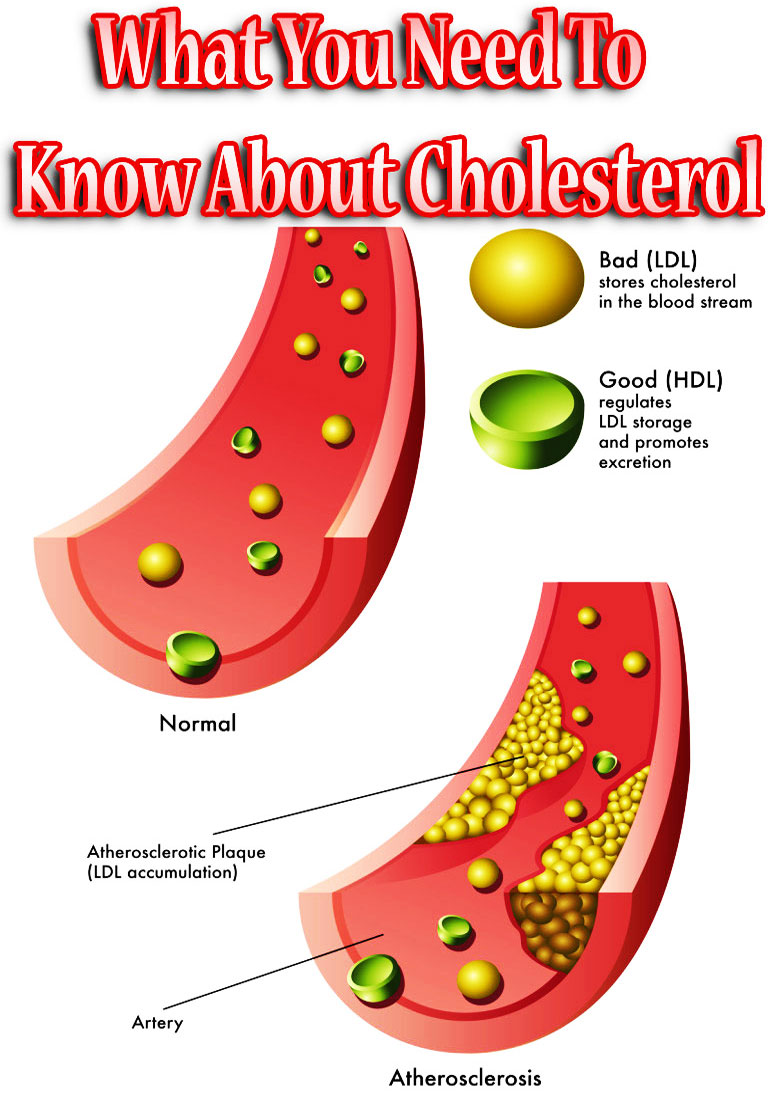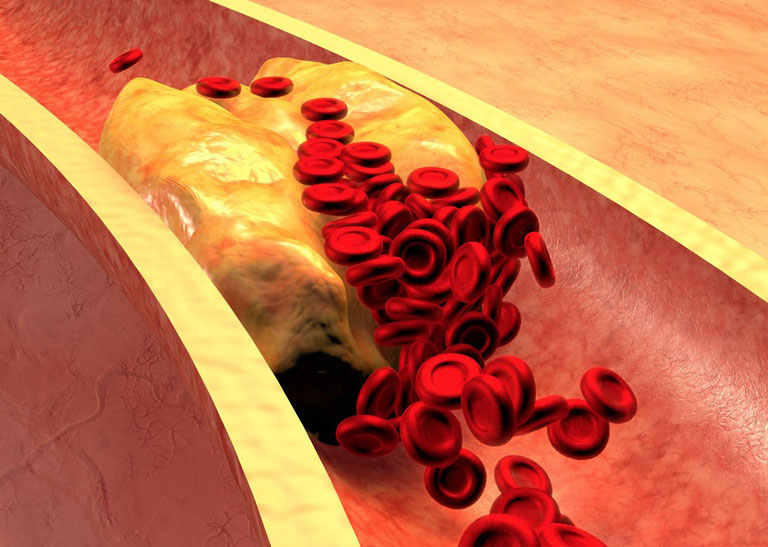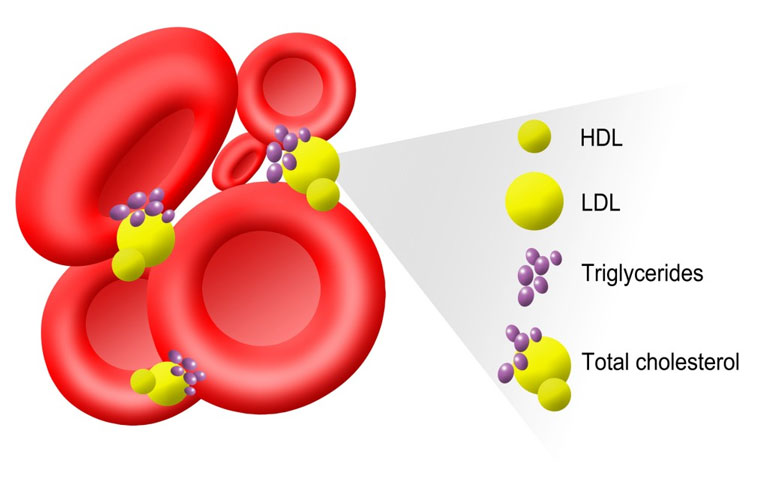
Heart disease is the number one killer of women and men in the United States
Your blood cholesterol level has a lot to do with your chances of getting heart disease. High blood cholesterol is one of the major risk factors for heart disease. The higher your blood cholesterol level, the greater your risk for developing heart disease or having a heart attack.
What is cholesterol?
Cholesterol is a chemical compound that the body requires as a building block for cell membranes and for hormones like estrogen and testosterone. The liver produces about 80% of the body’s cholesterol and the rest comes from dietary sources like meat, poultry, eggs, fish, and dairy products. Foods derived from plants contain no cholesterol.
Cholesterol content in the bloodstream is regulated by the liver. After a meal, cholesterol in the diet is absorbed from the small intestine and metabolized and stored in the liver. As the body requires cholesterol, it may be secreted by the liver.
When too much cholesterol is present in the body, it can build up in deposits called plaque along the inside walls of arteries, causing them to narrow.
How Does Cholesterol Cause Heart Disease?
When there is too much cholesterol (a fat-like substance) in your blood, it builds up in the walls of your arteries. Over time, this buildup causes “hardening of the arteries” so that arteries become narrowed and blood flow to the heart is slowed down or blocked. The blood carries oxygen to the heart, and if enough blood and oxygen cannot reach your heart, you may suffer chest pain. If the blood supply to a portion of the heart is completely cut off by a blockage, the result is a heart attack.
High blood cholesterol itself does not cause symptoms, so many people are unaware that their cholesterol level is too high. It is important to find out what your cholesterol numbers are because lowering cholesterol levels that are too high lessens the risk for developing heart disease and reduces the chance of a heart attack or dying of heart disease, even if you already have it. Cholesterol lowering is important for everyone–younger, middle age, and older adults; women and men; and people with or without heart disease.
What Do Your Cholesterol Numbers Mean?
Your doctor can diagnose high cholesterol with a simple blood test called a fasting lipid or lipoprotein profile. There are four numbers that you and your doctor should be concerned about when determining whether or not you have high cholesterol.
Total Blood or Serum Cholesterol
This is the sum of your HDL and LDL cholesterol scores and is generally a good indicator of whether you’re at risk for heart disease.
- Optimal: Less than 200 mg/dL
- Borderline high: 200-239 mg/dL
- High: 240 mg/dL or higher
High-Density Lipoprotein (HDL)
High-Density Lipoprotein (HDL) is considered the “good” cholesterol because it helps keep the arteries clear of the clogging “bad” LDL cholesterol. In most people, high HDL helps protect against heart disease. Low levels of HDL are associated with a greater risk of heart disease. Therefore, the higher your HDL score is, the better. If your HDL falls in the “low” range, you are considered a major risk for heart disease.
- Low: less than 40 mg/dL for men and less than 50 mg/dL for women
- Normal: above 45 mg/dL for men and above 55 mg/dL for women
- Optimal: 60 mg/dL and above can lower your risk of heart disease
Low-Density Lipoprotein (LDL)
A high level of “bad” LDL cholesterol can clog the arteries and is a major risk factor for heart disease. Keeping your LDL as low as possible is a good way to protect your health.
- Optimal: Less than 100 mg/dL
- Normal/Near Optimal: 100-129 mg/dL
- Borderline High: 130-159 mg/dL High: 160-189 mg/dL
- Very High: 190 mg/dL and above
People with heart disease and those who are at very high risk of heart disease (such as those with metabolic syndrome) need to keep their LDL even lower than the optimal score (less than 70 mg/dL is recommended). People with diabetes or multiple risk factors for heart disease (such as smoking or having low HDL levels) should aim for an LDL reading within the optimal category. It is important to consult your physician about where your ideal LDL levels should be.
Triglycerides
Triglycerides are another type of fat found in the bloodstream. A high level of triglycerides is associated with a greater risk of heart disease. When it comes to your test results, the lower the number, the better.
- Normal: less than 150 mg/dL
- Borderline High: 150-199 mg/dL
- High: 200-499 mg/dL
- Very High: 500 mg/dL and above







Leave a Reply